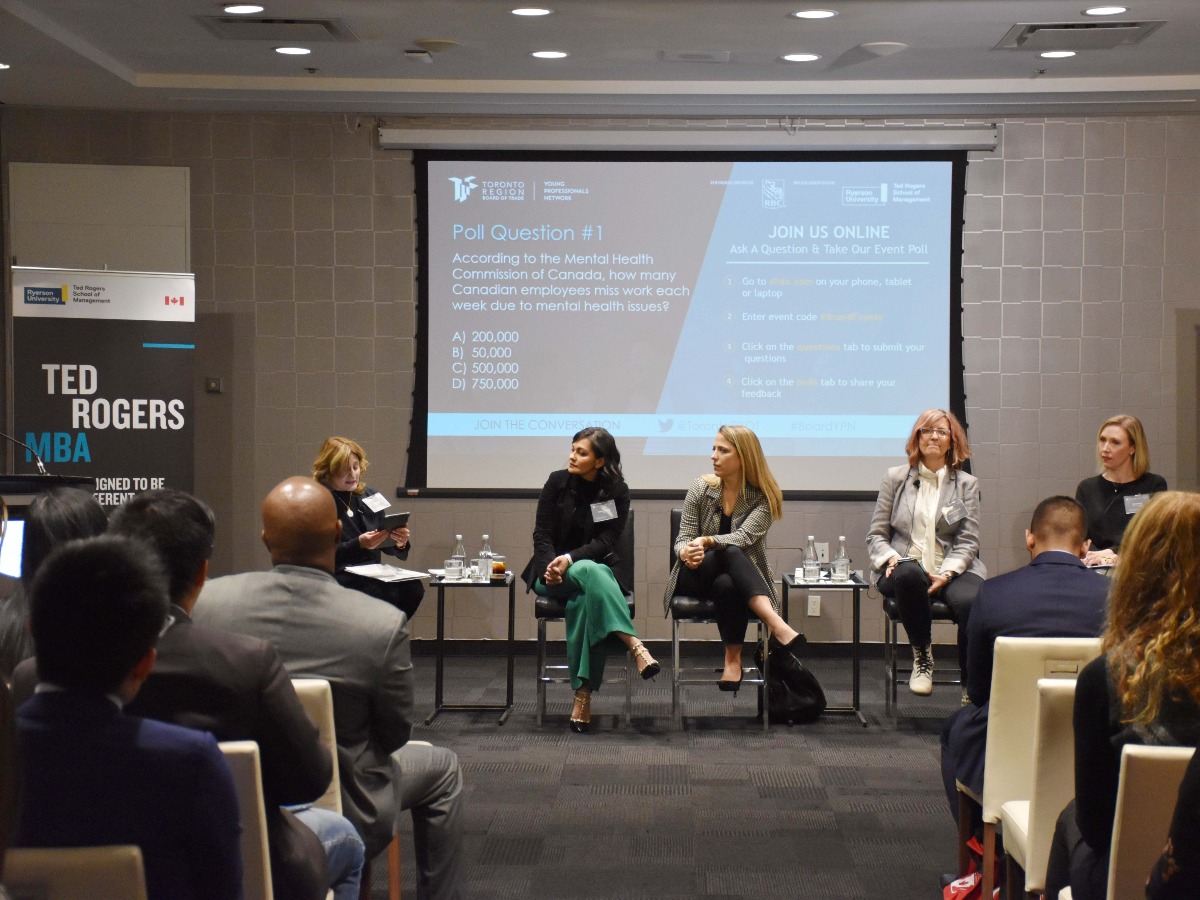Supporting mental wellness and well-being in the workplace

With 500,000 employees unable to work every week due to mental health problems or illnesses, and a third of Canadians reporting workplace stress as the primary cause of this, leadership and culture in today’s workplaces need to change to improve well-being.
Experts from the Ted Rogers School of Management were part of a Toronto Region Board of Trade/Young Professionals Network panel addressing the challenges presented by those daunting statistics. The event, co-hosted by Ted Rogers MBA and TBOT, was held December 4, 2019 at the Toronto Region Board of Trade office.
The panel was made up of Carolyn Plater (Co-Founder, Hoame), Farhana Mahbub (Director, Strategic Initiatives - Regulatory Compliance at RBC Capital Markets and Ted Rogers MBA graduate), Natasha Kovacevic, PhD (Founder & CEO, xSensa Labs) and Dr. Kristyn A. Scott (Associate Professor, HR Management and Organizational Behaviour, TRSM), and was moderated by Dr. Donna Smith, (Director, Ted Rogers MBA Programs).
The panel discussed how stress factors in workplaces can be improved. From an individual level, stress factors can be managed by understanding your personality and how you typically interact with your direct reports. Determining this may help young leaders to understand how they can communicate with their direct reports that would be conducive to a better working environment.
From an organizational level, meanwhile, stress factors can be better managed by creating an organizational structure that enables stress management freely (a top-down approach). Making adjustments to company culture to help stress management were also seen to help increase productivity.
In addition, the panel talked about how to create a corporate culture that supports health and well-being and whether leadership can be learned. “A lot of [leadership] training focuses on one-on-one training with very little focus on developing relationships,” explains Dr. Scott, who is also the Director of Research for the Ted Rogers Leadership Centre. “Building meaningful relationships can help with promoting leadership and programs around wellness and well-being."
Dr. Smith talked about the importance of emotional intelligence as a skill coveted by employers and management teams, and empathy also came up as a skill to exercise when managing people.
“In the Ted Rogers MBA program, we focus on leading for performance and well-being,” says Dr. Smith. “Maintenance of mental and physical health, along with a new perspective on leadership should be integrated into organizational culture. This will pave the way for fulfillment on the job, achievement of organizational objectives, and ultimately, personal growth.”